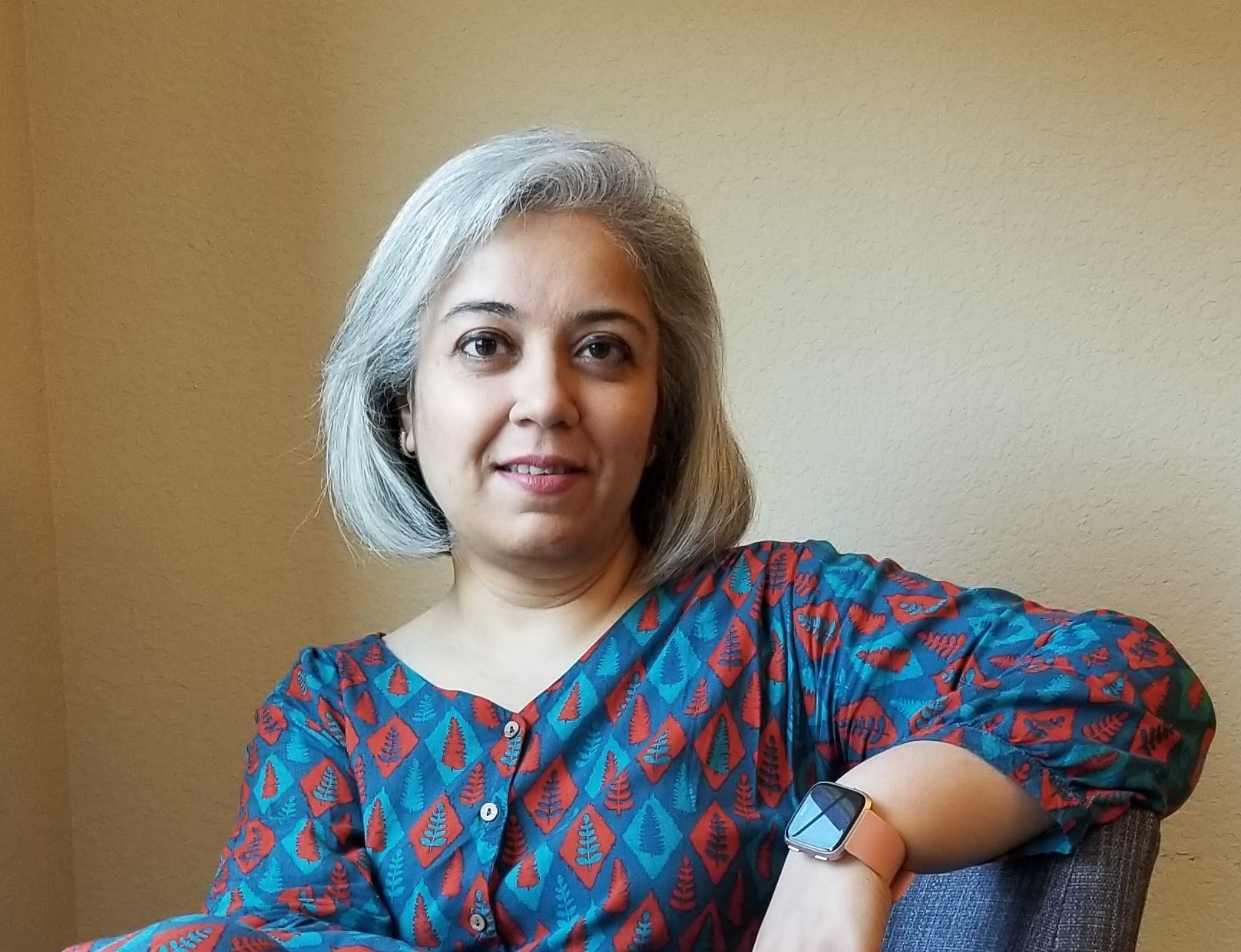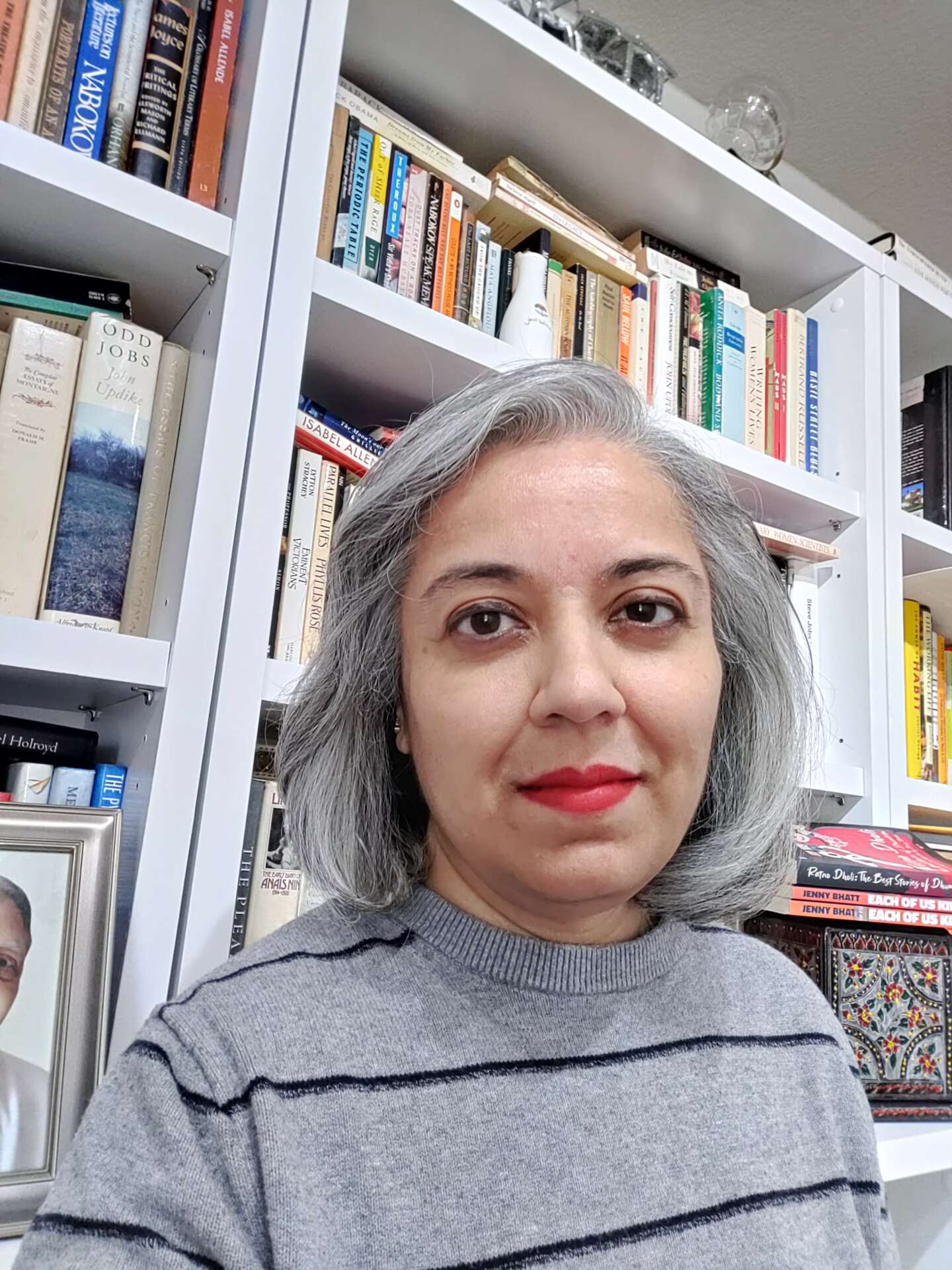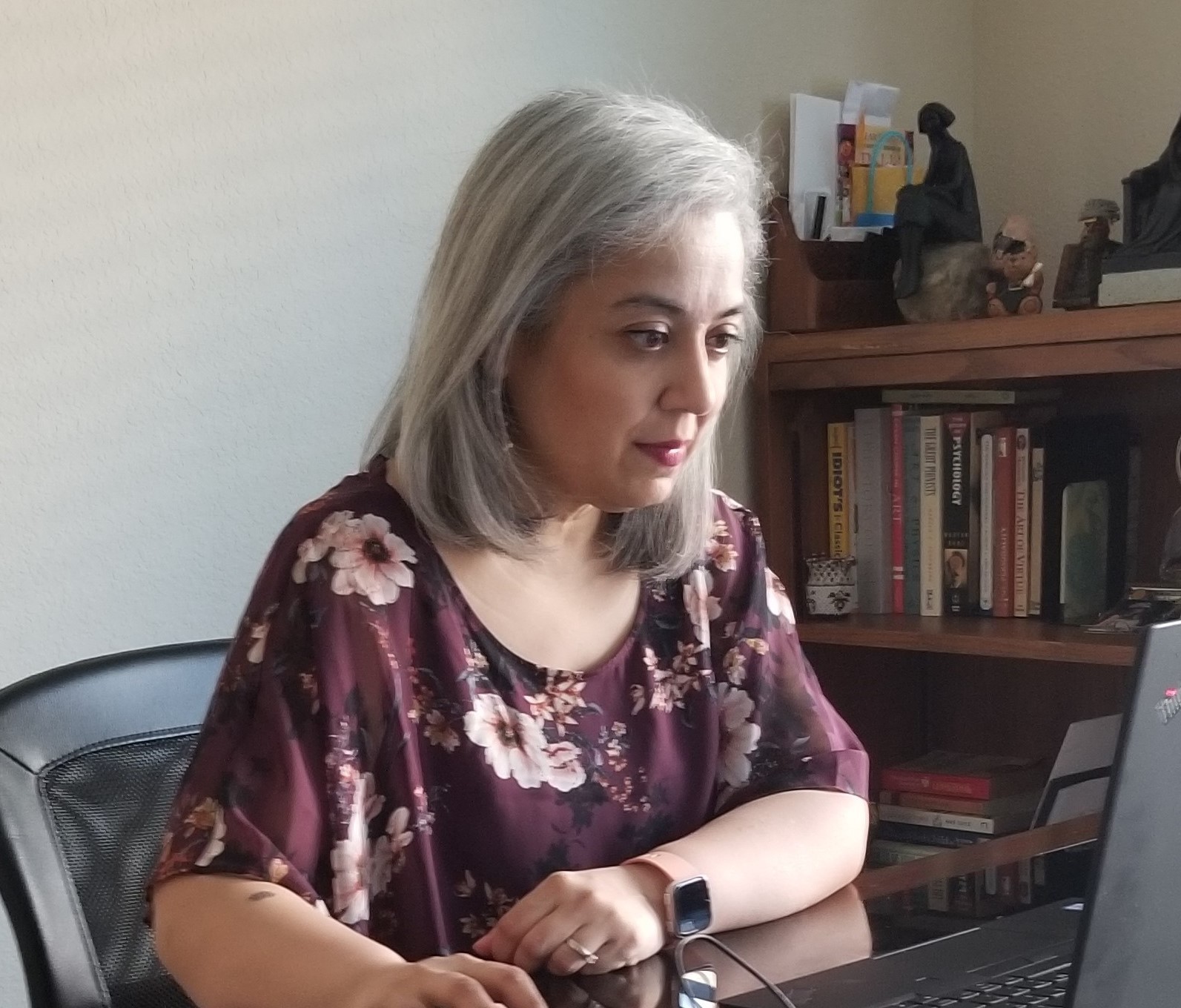We recently connected with Jenny Bhatt and have shared our conversation below.
Jenny, thanks for joining us, excited to have you contributing your stories and insights. Let’s kick things off with your mission – what is it and what’s the story behind why it’s your mission?
Desi Books began as a modest pandemic-driven podcast in 2020. For a few years, I’d been seeing how the same kinds of books by writers of South Asian origin were being spotlighted by news media and the publishing ecosystem. Not that there was anything wrong with these books but that they mostly focused on particular versions of South Asia or South Asian cultures instead of the huge diversity and multiplicity of our stories. I wanted to start spotlighting those books, connecting those writers with their readers, generating some conversation and community around such literature. Since 2020, Desi Books LLC has grown to feature hundreds of writers of South Asian origin from all over the world via text, audio, and (soon) video channels. We’re still a small bootstrap venture but we work hard and have a loyal reader/audience base that’s spread out across the world. Our goal is to keep doing what we’re doing but scale it all up in sustainable, consistent ways.

Great, appreciate you sharing that with us. Before we ask you to share more of your insights, can you take a moment to introduce yourself and how you got to where you are today to our readers?
I came to the US as an immigrant in my 20s. I was an engineer working in corporate America. My work took me all around the world but reading and writing were constants. They were more than a hobby because I took writing workshops in my spare time, wrote for a few publications, and always hoped to be able to retire early to write full-time. When I turned 40, certain life circumstances made me take a long, hard look at myself and I left my comfortable job in Silicon Valley to live off my savings and write full-time. It’s been a long, winding journey to create the various books, publications, teaching career, and small media business that I have today. I’m proud of every step and stumble on this ongoing journey because each one has taught me important lessons, both personal and professional. The work I do at Desi Books LLC, a global multimedia forum that showcases South Asian literature and connects readers and writers through conversation and community, is about bringing awareness to the many kinds of stories and writers of South Asian origin. It’s about spotlighting and elevating our literary traditions. It’s about creating a rising tide that lifts all boats instead of just a handful of us. It’s about making sure that our own communities can take pride in and uplift our own literatures.

What’s the most rewarding aspect of being creative in your experience?
I wear multiple hats with my portfolio career as a writer, a literary translator, a creative writing instructor, and founder and editor-in-chief of Desi Books LLC. Several years ago, I learned about the idea of multipotentiality: when a person’s interests span multiple fields and areas and they thrive at the intersections of some of these interests/fields. For me, taking my background and interest in technology and business and connecting it with my love of writing and literature has been most satisfying. It has allowed me to develop different income streams for myself. And each of these practices or disciplines has helped me develop different strengths to work better within all of them. I’m in a mode of constant learning and growth but that also means that I’m able to learn and adapt quickly to new situations and opportunities. For me, finding and working within new intersections of my interest areas/fields is one of the most rewarding aspects of being a creative multipotentialite.

Have any books or other resources had a big impact on you?
There are many books, videos, and essays that have influenced me. I’ll mention two books here because they’ve been foundational and I still go back to them often.
1) During the latter part of my corporate years, I read mostly business-related books. Some were awful, some had a bit of useful stuff in them, and some helped me in ways the authors hadn’t intended. One of these was THE STARTUP OF YOU by Reid Hoffman (co-founder, LinkedIn) and Ben Casnocha. There’s a lot of tech-biz speak throughout this quick read so it won’t appeal to those who dislike such language. I was in that world so it didn’t bother me. My biggest takeaway—or the immensely liberating permission I got from it—came from its “Plan ABZ” approach. First, the book describes how to create an actionable, detailed plan for your life’s main goal as if you’re a startup yourself. Loads of tech startup examples (again, won’t appeal to all.) This is Plan A: the quickest path to your goal, given your specific circumstances. After that, per the book, you should also create a detailed, actionable Plan B: a viable and feasible pivot from Plan A (if/when that looks difficult/impossible to achieve) that still gets you to the same goal but along a different, possibly longer, route. Every time you update/change Plan A, you should update/change Plan B too. Where this book differs from most other such books is that it also recommends a Plan Z. That’s your all-hands-to-deck, lifeboats-out, everything-and-the-kitchen-sink, no-turning-back plan to get to your goal. And here’s the important thing. Plan Z should also be as thoroughly planned as Plans A and B. Meaning, you must have a clear, tangible set of steps for achieving Plan Z, should you need to abandon both Plans A and B and deploy Z. This Plan ABZ approach is, essentially, how I finally made the shift from a corporate career to full-time writing work for me.
My Plan A had been about working my butt off to save enough to retire early and write full-time. The 2008 financial crisis forced me to deploy Plan B, which was about trying to do a bit of writing while still working full-time because early retirement wasn’t going to happen when I needed it to. Eventually, realizing that, even with Plan B, I couldn’t be a slave to two masters, I had to abandon ship entirely and deploy Plan Z: leave the corporate career, downsize my lifestyle, and move back to India for a few years to write full-time. Each Plan A, B, and Z had specific steps with financials that I would often revisit and tweak as needed. I’ve written elsewhere about this journey but I haven’t mentioned this book and how it helped me.
2) HOW TO BE EVERYTHING by Emilie Wapnick came out in 2017 but she’s been talking about multipotentiality since at least 2015. (see her TED Talk.) This book describes the term, pros and cons of being a multipotentialite, and the common misconceptions and challenges to accepting this mindset. She then gets into the various models to build a creative career and gives plenty of real-life examples of folks thriving in such careers. The book and the website have plenty of resources and, in particular, I’m focused on learning more from them about how to turn all my interests into a single business. Wapnick calls this a “renaissance business.” It’s not easy, of course. You do need certain tangible resources to be able to create this kind of life. And you have to get past the biases and prejudices of many folks, including friends and family members, to keep on keepin’ on. The most important takeaways are about embracing the multipotentialite within you, holding fast to your own confidence, and accepting all the learning that happens along the way.
Contact Info:
- Website: https://jennybhattwriter.com
- Instagram: https://www.instagram.com/jennybhatt0/
- Facebook: https://www.facebook.com/jennybhatt0/
- Linkedin: https://www.linkedin.com/in/jennybhatt/
- Twitter: https://twitter.com/jennybhatt
- Youtube: https://www.youtube.com/c/JennyBhatt0
- Other: These are links to Desi Books LLC: Website: https://desibooks.co Facebook: https://www.facebook.com/desibooksfb/ Twitter: https://twitter.com/DesiBooks Instagram: https://www.instagram.com/desi.books/ Youtube: https://www.youtube.com/channel/UCWZWRJ_RMxDOkuOyT1RBkvQ
Image Credits
Photo Credit: Praveen Ahuja


